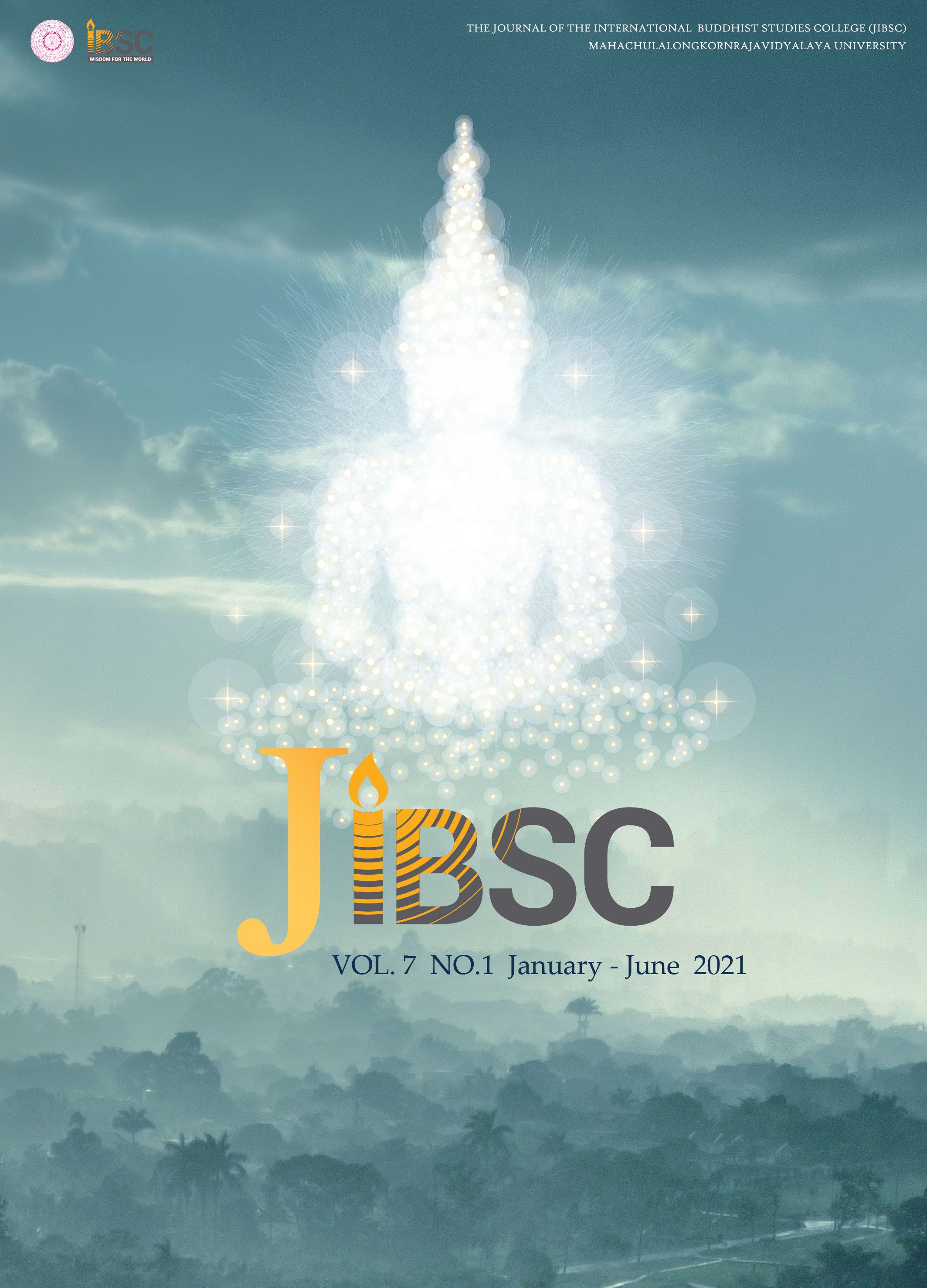An Analytical Study of Phrakrusangworasitthichote’s Educational Administration for Educational Equity among Highland Youths
Main Article Content
Abstract
There were two objectives in this study: 1) to survey the status of educational administration at Wat Ban Khun Buddhist School and 2) to analyze the educational administration for educational equity by Phrakrusangworasitthichote. Data were collected through field observation and in-depth interviews with the school principal, vice principal and 3 teachers who had worked for more than five years and assisted the school principal. The data were analyzed using the framework of POSDCoRB, which included planning, organizing, staffing, directing, coordination, reporting and budgeting. The findings showed that the school has provided the free Pāli study and basic education in the lower and upper secondary levels to underprivileged highlander youths since 2003. The school became the leading Phrapariyattidhamma school and had the highest number of students who passed the Pāli examinations in Chiang Mai. Moreover, educational equity was implemented through all elements of POSDCoRB. All students were treated fairly and inclusively. From the perspective of fairness, the admission process was fairly open to all students. Students equally received the learning materials as well as the personal necessities. The scholarships were also suitably distributed. From the perspective of inclusiveness, the school created a conducive learning environment. The disadvantaged students received an extra care. For example, the malnourished students received the special nutritional care. Those who lacked of reading and writing skills were included in a ‘nursery class’ to develop their language proficiency. Moreover, English language and computer classes were provided.
Article Details
The Journal of TCI is licensed under a Creative Commons Attribution-NonCommercial-NoDerivatives 4.0 International (CC BY-NC-ND 4.0) licence unless otherwise stated. Please read our Policies page for more information on Open Access, copyright and permissions.
References
Bhikkhu Bodhi (tr.). The Middle Length Discourse of the Buddha (Majjhima Nikāya). Massachusetts: Wisdom Publications, 2015.
Buddhaghosa. The Path of Purification (Visuddhimagga). Tr. by Bhikkhu Ñāṇamoli. Onalasky, WA: Pariyatti Publishing, 2013.
Davids, T.W. Rhys and Stede, W., Pali English Dictionary. Delhi: Bharatiya Granth Niketan. 2007.
E.M. Hare (tr.), The Book of the Gradual Sayings (Aṅguttara Nikāya). Vol. III. Oxford: PTS., 2008.
F. L. Woodward (tr.). The Book of the Gradual Sayings (Aṅguttara-Nikāya). Vol. V. Oxford: PTS., 2003.
F. L. Woodward (tr.). The Book of the Kindred Sayings (Saṃyutta Nikāya). Vol. V. London: PTS., 1979
I.B. Horner (Tr.). The Middle Length Sayings (Majjhima-Nikāya). Vol. II. London: PTS., 1975.
K.R. Norman (Tr.). The World of the Doctrine (Dhammapada). Oxford: PTS., 2004.
T.W. Rhys Davids. Dialogues of the Buddha (Dīgha-Nikāya). Vol. II. Oxford: PTS.2002.
A.B. Fetherston. 1994. Towards a Theory of United Nations Peacekeeping. Great Britain: Macmillan Press.
Adelson, Anne. 2000. “The Culture of Peace and the evolution of human beings.” International Journal of Humanities and Peace 16: 23.
Agius, Emmanuel, and Jolanta Ambrosewicz. 2013. Towards a Culture of Tolerance and Peace. Quebec: International Bureau for Children’s Rights.
Butr Indr, Siddhi. 1995. The Social Philosophy of Buddhism. 3rd ed. Bangkok: Mahamakut Buddhist University.
Eisler, Riane. 2004. Educating for a Culture of Peace. edited by Eriane Eisler and Ron Miller. Portsmouth: Heinemann.
Hedge, Chris. 2003. “What Every Person Should Know About War.” New York Times. Accessed 7 January. https://www.nytimes.com/2003/07/06/books/chapters/what-every-person-should-know-about-war.html.
Hong, Ying-Yi. 2009. Understanding Culture. New York: Taylor & Francis.
Institute for Economics and Peace. 2017. Global Peace Index 2017. IEP (Sydney: IPE).
Lally, P., H. Cornelia, and V. Jaarsveld. 2010. “How are habits formed: Modelling habit formation in the real world.” European Journal of Social Psychology 40: 998-1009.
Narada. 1988. The Buddha and His Teachings. Kuala Lumpur: Buddhist Missionary Society.
Oxford, Rebecca L. 2014. Understanding Peace Cultures. Book.Peace Education. Charlotte, NC: Information Age Publishing.
P.A. Payutto (Somdet Phra Buddhaghosacariya). 2017. Buddhadhamma The Laws of Nature and Their Benefits to Life. Translated by Robin Philip Moore. Bangkok: Buddhadhamma Foundation.
Rensch, Bernhard. 1972. Homo Sapiens from Man to Demigod. New York: Routledge. Methuen & Co.Ltd.
Tylor, Edward Burnett Sir. 1958. Religion in primitive culture. Non-fi action. New York: Harper & Row.
UNESCO. “Yamoussoukro International Congress in the Minds of Men.” Last Modified 1 July 1989. Accessed 2 August https://unesdoc.unesco.org/ark:/48223/pf0000092670.
UNESCO, 1989. “Yamoussoukro Declaration on Peace in the Mind of Men.” UNESCO. Accessed 15 June. http://www.unesco.org/education/pdf/YAMOU_E.PDF.
UNESCO, 1997. “Declaration on the Responsibilities of the Present Generations Towards Future Generations.” UNESCO. Accessed 10 February. http://portal.unesco.org/en/ev.php-URL_ID=13178&URL_DO=DO_TOPIC&URL_SECTION=201.html.
World Bank. 2018. Pathway for Peace. Washington: International Bank for Reconstruction and Development.


